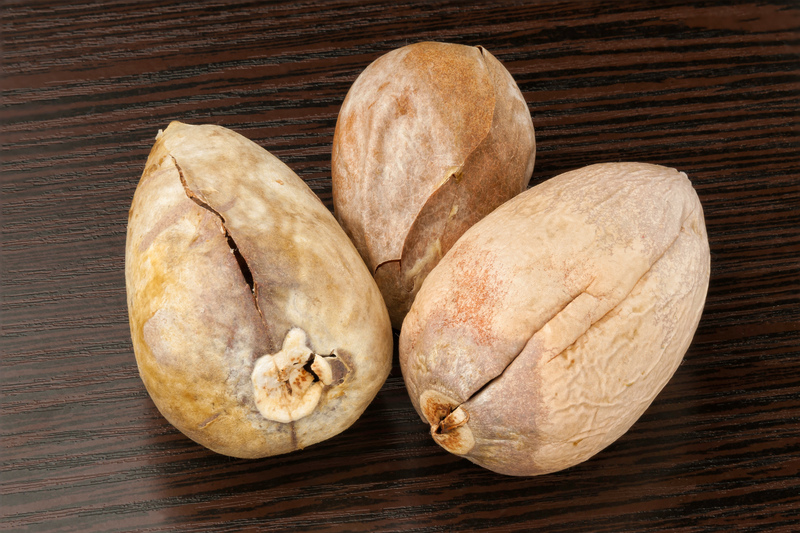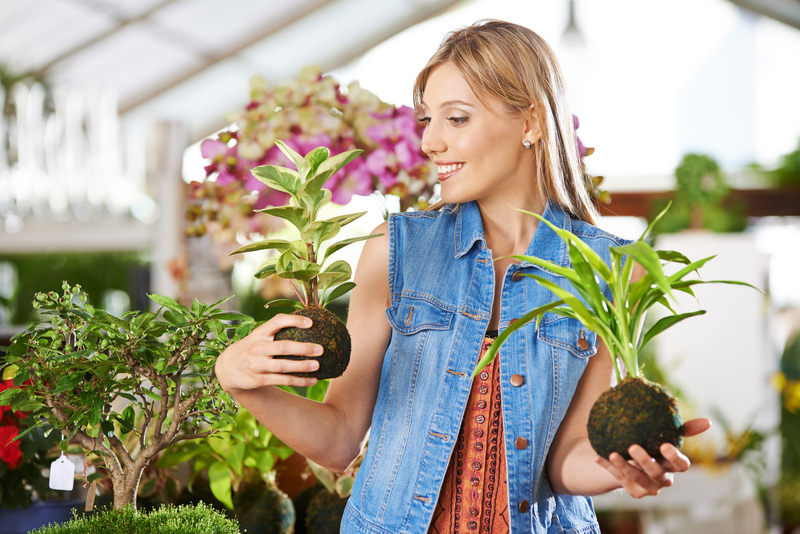Waste Not, Want Soil: An Organic Solution
Posted on 28/05/2025
Waste Not, Want Soil: An Organic Solution
Waste Not, Want Soil is a principle that emphasizes the importance of transforming our organic waste into nutrient-rich soil. In an age where landfill space is shrinking and climate change is worsening, organic waste solutions are not just an environmental afterthought--they're a necessity. Composting, vermicomposting, and other organic recycling methods are becoming central to both sustainable gardening and modern waste management.

Why Organic Waste Matters
When most people think of waste, they picture overflowing bins destined for landfills. However, food scraps, yard trimmings, and other organic materials account for a significant portion of our daily trash. According to the EPA, organic waste makes up almost 30% of what we throw away (source: EPA). Landfilled organic matter not only wastes valuable compostables but also releases methane, a powerful greenhouse gas.
- Landfills harm the climate: Decomposing organic waste in the absence of air produces methane, which is 25 times more impactful than CO?.
- Lost nutrients: When organic waste isn't recycled, key nutrients are removed from our soil systems.
- Missed opportunities: Organic solutions like composting close the nutrient loop, supporting healthier soils and plants.
Composting: The Cornerstone of Organic Waste Solutions
Composting is the controlled decomposition of organic materials into humus-rich soil. This process is nature's way of recycling, turning waste into want--specifically, nutrient-dense soil perfect for gardens, farms, and landscaping. Waste Not, Want Soil thus becomes a mantra for sustainable living.
How Composting Works
At its core, composting requires four key ingredients:
- Greens: Food scraps, grass clippings, coffee grounds (rich in nitrogen).
- Browns: Leaves, straw, cardboard, and paper (provide carbon).
- Water: Supports microbial activity.
- Air: Helps aerobic bacteria break down materials efficiently.
Microorganisms and invertebrates--such as earthworms and fungi--feast on this mixture, turning discarded matter into black gold: compost. When added to soil, compost improves its structure, fertility, and moisture retention.
The Benefits of Composting
- Reduces landfill waste: Diverts up to 30% of household trash.
- Cuts greenhouse gases: Less methane is generated.
- Boosts soil health: Adds organic matter and beneficial microbes.
- Improves plant growth: Supports robust root systems and higher yields.
Vermicomposting: Nature's Soil-Enhancing Factory
Vermicomposting is an organic waste solution that uses earthworms to accelerate the composting process. Red wiggler worms are especially effective at eating kitchen scraps and turning them into castings, a form of highly enriched soil.
How Vermicomposting Improves Soil Health
Worm castings are rich in plant nutrients and beneficial microbes, supporting strong plant growth and disease resistance. Vermicomposting is ideal for small-space and indoor settings, making it accessible even for urban dwellers and apartment residents seeking to recycle food waste at home.
- Compact & efficient: Small, odorless bins make it easy to set up anywhere.
- Faster decomposition: Worms break down organic matter more quickly than traditional composting.
- Produces premium fertilizer: Castings can be used as a garden top dressing or house plant soil amendment.
Organic Waste Solutions Beyond the Backyard
While home composting is a great start, large-scale organic recycling systems offer communities, municipalities, and businesses an effective way to manage organic waste on a broader level. Commercial composting facilities handle everything from food scraps to yard trimmings, providing high-quality soil amendments for farms, parks, and landscaping projects.
Community Composting Initiatives
Many cities now support community composting programs. These initiatives accept organic waste from residents and turn it into compost using larger-scale operations. This not only diverts waste from landfills but also:
- Generates local jobs
- Improves public green spaces
- Reduces municipal waste management costs
How "Waste Not, Want Soil" Boosts Soil Health
Soil degradation is a growing concern globally. Chemical fertilizers, erosion, and monoculture farming deplete organic matter and beneficial life in the soil. Regular application of organic soil amendments--like compost, worm castings, and leaf mold--can restore and rejuvenate even poor soils.
8 Ways Organic Solutions Enhance Your Soil
- Increases soil fertility: Replenishes nutrients, enabling nutrient uptake by plants.
- Improves soil structure: Supports better root growth and water retention.
- Boosts microbial populations: Healthy microbes protect against diseases and pests.
- Reduces soil erosion: Increases organic matter, helping bind soil particles.
- Enhances water retention: Improves drought resistance by holding moisture longer.
- Encourages biodiversity: Healthy, organic soils support a range of life-forms from insects to fungi.
- Detoxifies soil: Compost breaks down pollutants and heavy metals, making soils safer for growing food.
- Reduces dependence on chemicals: Organic soil health solutions decrease the need for synthetic fertilizers and pesticides.
Organic Waste Management: Home Practices for Healthier Soil
Even for beginners, implementing the Waste Not, Want Soil principle at home is simple. Here's how you can start your organic soil improvement journey:
1. Start a Backyard Compost Pile or Bin
Find a corner of your yard for a compost pile, or use a store-bought bin. Alternate layers of browns and greens, and turn the heap every few weeks to ensure aeration. Keep the mix moist but not saturated.
2. Try Vermicomposting Indoors
Vermicomposting bins are compact and can fit under a sink or in a closet. Add shredded paper, a handful of worms, and your kitchen waste. Harvest the worm castings every few months for immediate use on houseplants or outdoor gardens.
3. Collect and Mulch Yard Waste
Leaves, grass clippings, and small branches can be shredded and left to decompose as mulch. This not only suppresses weeds but gradually enriches soil with organic matter.
4. Participate in Local Organic Waste Programs
If you don't have space to compost, many towns now offer curbside pickup or drop-off points for food and yard waste, ensuring your organic materials become valuable soil amendments.
Soil: The Foundation of Life
Healthy soil is essential for sustainable food production, climate stability, and clean water. Organic waste recycling provides natural fertilizers and soil conditioners that steadily improve soil quality over time. Adopting a "waste not, want soil" mindset is one of the most effective steps individuals and communities can take to support planet health.
Did You Know?
- Compost can suppress certain plant diseases and pests.
- Healthy organic soil can sequester more carbon than degraded land.
- You can safely compost most vegetable scraps--including coffee grounds and eggshells!
- Soil with added organic matter requires less irrigation and fewer chemical inputs.
Challenges and Solutions in Organic Waste Recycling
Despite its benefits, organic waste solutions do face several challenges:
- Contamination: Non-organic materials (like plastic bags) can slow down composting.
- Lack of education: Many people are unsure about what is compostable.
- Infrastructure gaps: Not all communities have composting facilities.
Simple Solutions to Common Obstacles
- Education: Clear guidelines help households compost correctly.
- Accessible bins: Cities can provide residents with compost buckets or bins.
- Drop-off centers: Community composting sites expand coverage even where curbside compost isn't available.
- Partnerships: Schools, restaurants, and businesses can work together to aggregate and process organic waste.

A Greener Future: Waste Not, Want Soil for All
Adopting an organic solution to waste closes the recycling loop and supports a healthier, more sustainable planet. By investing in soil health through composting and organic waste recycling, we nourish not only our gardens but also our communities and future generations. Soil made from waste is more than a gardening trend--it's an imperative for food security, environmental stewardship, and climate resilience.
Key Takeaways: Organic Solutions for the Modern World
- Transform waste: Turn food scraps and yard debris into valuable compost.
- Feed the soil: Healthy soils grow healthy plants and support carbon sequestration.
- Innovate locally: Choose the composting method that suits your space--home piles, worm bins, or community programs.
- Stay informed: Learn what materials are compostable, and educate others about organic waste management.
- Support sustainable policy: Advocate for organic recycling infrastructure in your region.
Conclusion: Waste Not, Want Soil--A Call to Action
With the average household generating over 200 pounds of compostable waste per year, it's time to harness the power of organic solutions. By keeping organic materials out of landfills and returning them to our gardens and landscapes, we ensure that every scrap--not wasted--enriches the soil for years to come. Waste Not, Want Soil is more than an idea: it's a lifestyle, a commitment, and a crucial solution for a thriving planet.
```
